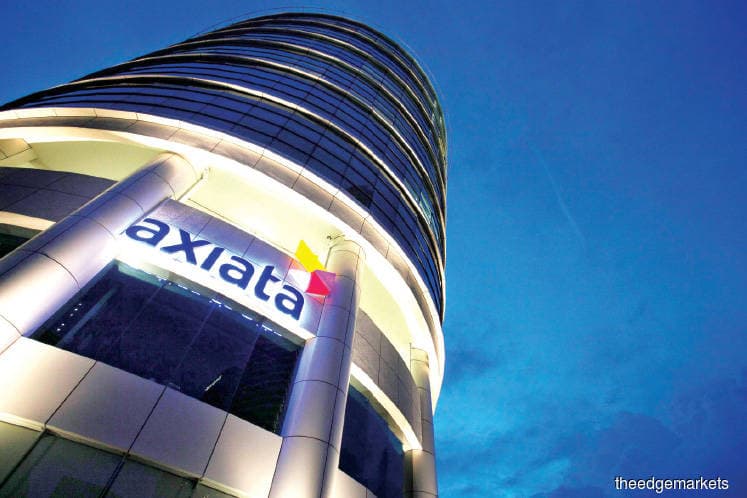
This article first appeared in The Edge Financial Daily on October 24, 2018
KUALA LUMPUR: The selling pressure on Axiata Group Bhd has yet to dry up.
The telco has been on a slippery downhill since the start of October. It was leading the fall among FBM KLCI component stocks yesterday, falling 24 sen, or 6.88%, to RM3.25 — the lowest closing since August 2010. Axiata has, in fact, dropped way below analysts’ target prices in the range of between RM3.70 and RM6.33.
Other big decliners among the 30 component stocks were Sime Darby Bhd (5.74%), CIMB Group Holdings Bhd (3.85%), Genting Malaysia Bhd (3.07%) and Tenaga Nasional Bhd (2.9%). The FBM KLCI shed 24.87 points or 1.44% to 1,697.6 points. This is the third time that the benchmark index falls below the psychological level of 1,700 points this year.
The challenging operating landscape against the backdrop of declining profit margin, cut-throat competition plus large capital expenditure requirement have made telco stocks fall out of favour regionally, including those on Bursa Malaysia.
The wave of selling of domestic telco stocks is partly because these stocks are still trading at a decent valuation compared with regional peers.
Telekom Malaysia Bhd (TM), which is expected to be removed from the FBM component stock list, is the biggest loser so far this month among the telcos on the local stock exchange, followed by Axiata and DiGi.Com Bhd (see table). Collectively, some RM24.6 billion of market capitalisation has been wiped out among the telcos listed on Bursa since the beginning of the month.
News of four key telcos, namely TM, Maxis Bhd, TIME dotCom Bhd and Celcom Axiata Bhd, reaching agreements on the mandatory standard on access pricing (MSAP), which will result in reduced prices of fixed broadband, is good for consumers but not for the service providers amid concerns over thinner margin. By the same token, some expect lower selling price might help increase the number of users, which will in turn make up for the narrower margin.
Still, like it or not, some analysts said MSAP has also triggered concerns over regulatory risks in some government-regulated industries.
Moreover, Communications and Multimedia Minister Gobind Singh Deo has indicated that the government intends to introduce more competition by having new players in the telecommunications sector and as a result, this would help drive the incumbents to offer better products at cheaper prices.
Concerns over an even tougher operating environment moving forward mounted following Gobind’s remark made on Oct 9.